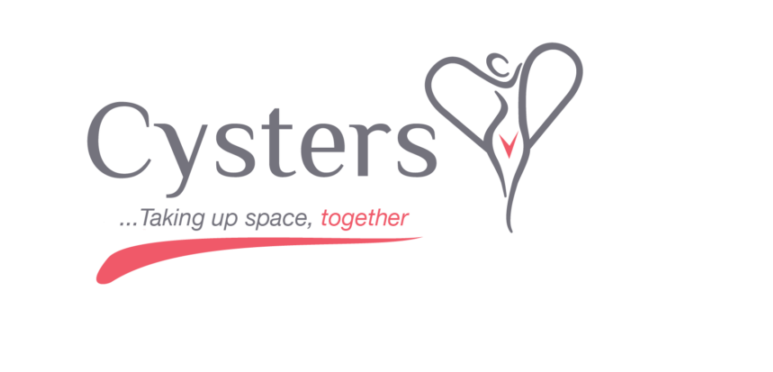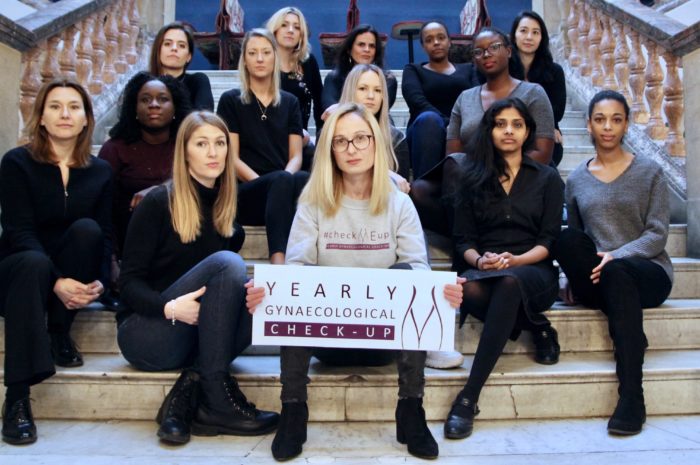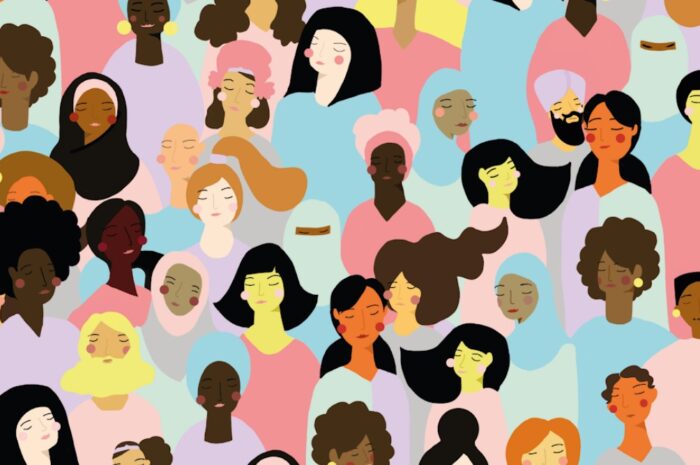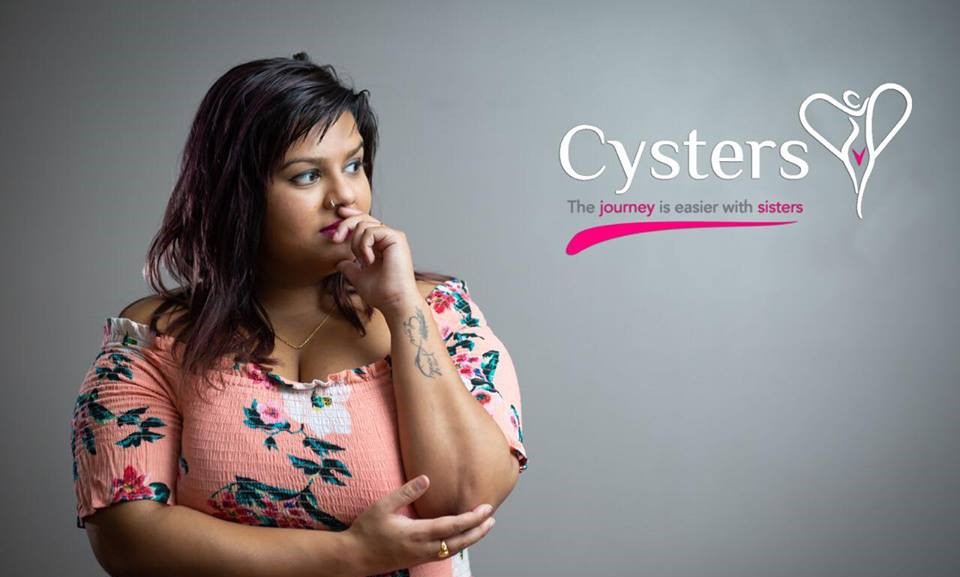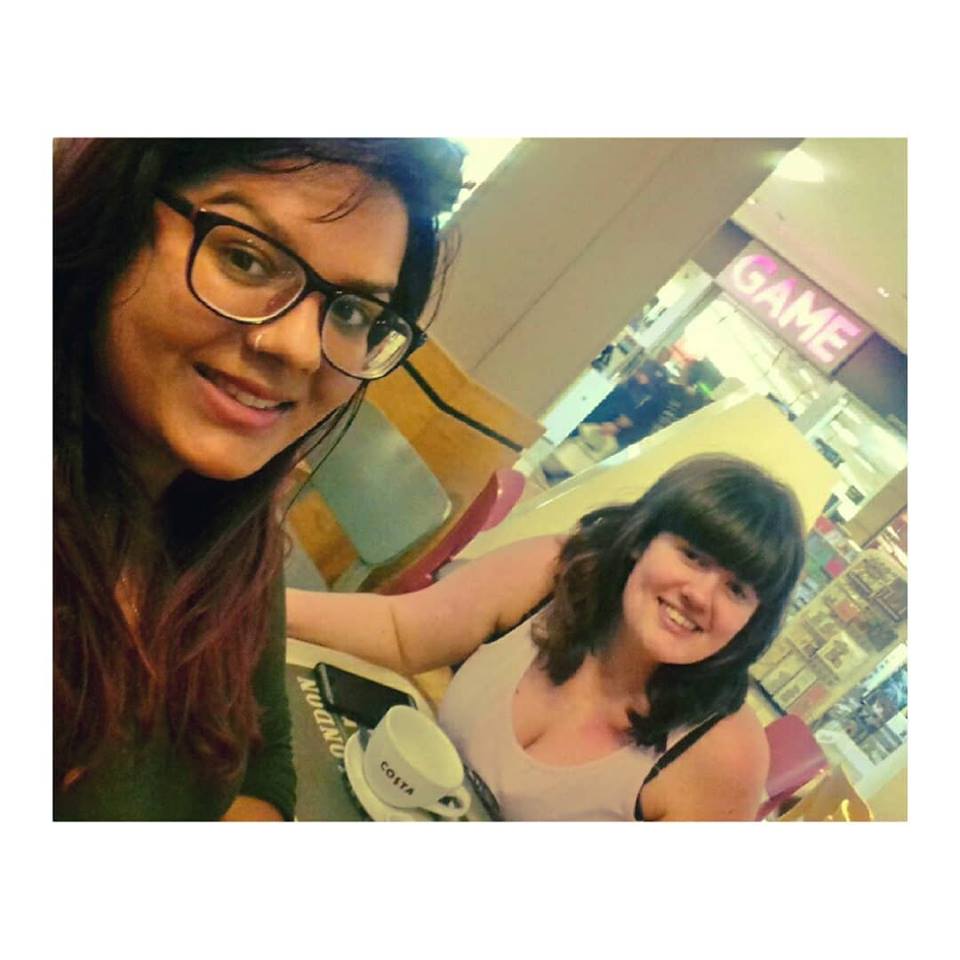
So, recently there was a post here on our Cysters platform that highlighted concerns around race and cultural stigmas within the community which is meant to be empowering women to take care of their bodies – NO MATTER WHAT COLOUR IT’S WRAPPED UP IN! The reason why I’m writing this post today is that it was requested of me by some near and dear friends of mine who I know battle so hard with this every single time they try and do something for the benefit of you, our cySTARS.
Some of you may be wondering why I agreed to write this, after all, I am a white girl and I’ll never experience the racial prejudice that’s in the community for reproductive health problems – but that doesn’t mean that I don’t have the ability to see that this is wrong. We as womb warriors are fighting hard against our own bodies every day and the last thing we need to be doing is fighting the world to and but these are the cards we have been dealt with.
I was asked to write this from my point of view as I witness this awful stuff happening to some of the most amazing women I’ll ever meet and I don’t want their concerns to be brushed under the carpet because people may think they’re just ‘bitter brown girls who are just mad that they didn’t get funding.’ This is far from the case and as one of the main writers for Cysters, I want to be a voice for all of you, no matter what your background is and just because I’m no experiencing these racial stigmas doesn’t mean that I’m not capable of telling the white folks who are placing this on you that they’re wrong.
With that being said… it’s time to dive right into the strong tea that is the matter of racial and cultural prejudice in the already hormonally challenged issue of reproductive illness.
Social Media Influencers and Sexualising Illness
This one is one that I’m shocked is even a thing but these people are given funding from the British government when they contribute nothing other than toxic feminity to what is expected of us and our illnesses. If you are plowing money into women who have their illness controlled and not organizations that are building women up to do so, then you’re putting your money in the wrong place.
Social media influencer is always a term I’ve hated anyway. It’s just a load of false poses and spammy hashtags that don’t display the harsh realities of life behind it. So, if you’re going to talk down about yourself linking to your illness – especially when it’s to do with weight and you have a tightly toned stomach – stop, you’re hurting the women who’re struggling to control their bodies ability to gain weight faster than they will be able to lose it.
There’s also the issue of sexualizing our illnesses on Instagram and making suggestions that our reproductive health is all about sex. This idea is literally already destroying the lives of so many women out there – particularly those from a South Asain background. Women in these cultures live in fear of getting help for problems with their bodies because they will be branded a whore for it.
HoW wOuLd YoU kNoW KiRsTy, YoU’rE wHiTE? – Well, honey let me tell ya. I post on my social media platforms about my illness and have been hailed as an inspiration. Our founder, Neelam, on the other hand, posts about hers and has members of her community branding her a whore or men begging for sex in comments on her post. What’s the difference? Oh yeah, she’s brown. That’s it. That’s the only difference.
Evidence:


So, when I say they’re using toxic femininity to do this, what do I mean? I mean placing unrealistic and downright ridiculous expectations of women through such posts as “accidentally” wearing sexy lingerie to the gynecologist. F**K OFF HUN. Not going to lie, you’re just reinforcing the belief that reproductive health is only about sex and further damaging the confidence of BAME women with your ignorance.
I’ve never been one to tear other women down, but if you have been placed in a position of power to represent a spectrum of disorders then you need to take responsibility for what you say. If you aren’t speaking with consideration for every woman with these struggles, then you don’t speak for any of us.
Paying for a seat at their own table
This one really grinds my gears because I know that this is nothing but a con and a false vouch for inclusivity. During my time writing for Cysters, I’ve known women amongst our support group who have been asked to appear on panels and discuss reproductive health from the perspective of someone from a BAME background – seems all good for diversity right?
Well, it would be, had they then not been asked if they would pay to be part of the panel. That’s right. These companies want BAME women to pay to speak at their events because they want to be diverse. Nothing but a con.
These women who have become advocates for their communities have earned their right to speak out and be heard without being scammed out for money by an organization that claims to consider all cultures. This is their table and if you want to charge them for them to make your company look better… well we’ll just have to make our own diverse table and shout much louder than you.
Cysters is not just a platform for South Asain women
We’ve all heard about companies that use the “token” person to speak on behalf of their communities so that they can appear to be an inclusive space. There are several organizations that have used women from Cysters for exactly that and I’m so not here for it.
This idea of a ‘token brown person’ truly bothers me because someone’s race shouldn’t be the first thing you think of when looking for someone to voice their opinions on a topic – it should be all about the expertise. But it’s because of the use of BAME women from Cysters as these tokens that now there is some sort of view formed that we only provide support for South Asain women – completely untrue.
We have an open platform and supportive community for everyone in need of support and that includes every ethnicity and every gender. We are a family. Your appearance isn’t what we look at when you join us. We look at how we can help you.
Racist health care
This one is a quick point I’d like to make as the stats and all of that was covered in our previous post (see here). I’d just like to say that the fact that women of color are being mistreated in health care to the point where needless deaths are caused is a tragedy and we need to address that. Women of all races need to be able to feel safe and cared for in the health care system.
Women must stick together and support each other and those at the top must lend a hand to those trying to climb and if they aren’t willing to do that, they don’t represent us.
With this post, I truly hope that in future the people responsible will take better care of what messages they are putting out there and acknowledge that everyone battling an endocrine disorder has a voice, has a story, has a battle of their own.
